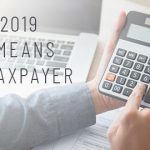What are Withheld Taxes?
‘Withheld Taxes’ are an extremely ambiguous term within the accounting world – why? Well because most of us will see this term and think of it to define the illegal operation of tax evasion…when in fact it’s actually nothing of the sort!
A friend of mine recently said that he spotted this phrase used on some documentation in relation to his paycheck and said it really scared him. Well It’s a very simple term and today I just wanted to explain what it means for anyone out there seeing it for the first time and being worried of what the implication of ‘withheld taxes’ may be to them.
In simple, withheld taxes are a method of paying tax through your PAYE. Honestly it’s that simple! It means the complete opposite of what it sounds like – what a paradox this phrase is creating among us, eh?
These are the taxes which automatically come out of your PAYE income and go directly to the HMRC such as your National Insurance Contributions and Income Tax.
So what is the ‘withheld’ bit all about I hear you ask! This simply means the money is ‘withheld’ from you and given directly to the HMRC.
So why does this system exist? Well it works two-fold really.
Firstly, it works as a means to simplify paying your tax. Instead of having to complete a tax-return every year and then pay your tax in a lump sum once it’s been calculated how much you owe (like a self-employed person) you simply have your tax deducted automatically from your paycheck on a monthly basis depending on what tax code and amount of pay you receive – much easier!
Secondly, the main reason it was enforced was because it helps the HMRC combat tax evasion. Can you imagine the time and money the government would waste chasing down every Tom, Dick and Harry that had forgotten to pay their National Insurance Contributions? Yep, exactly!
So there you have it, nice and simple and in a nutshell – the TRUE meaning of ‘withheld taxes’. A form of paying your taxes through PAYE.














Share On